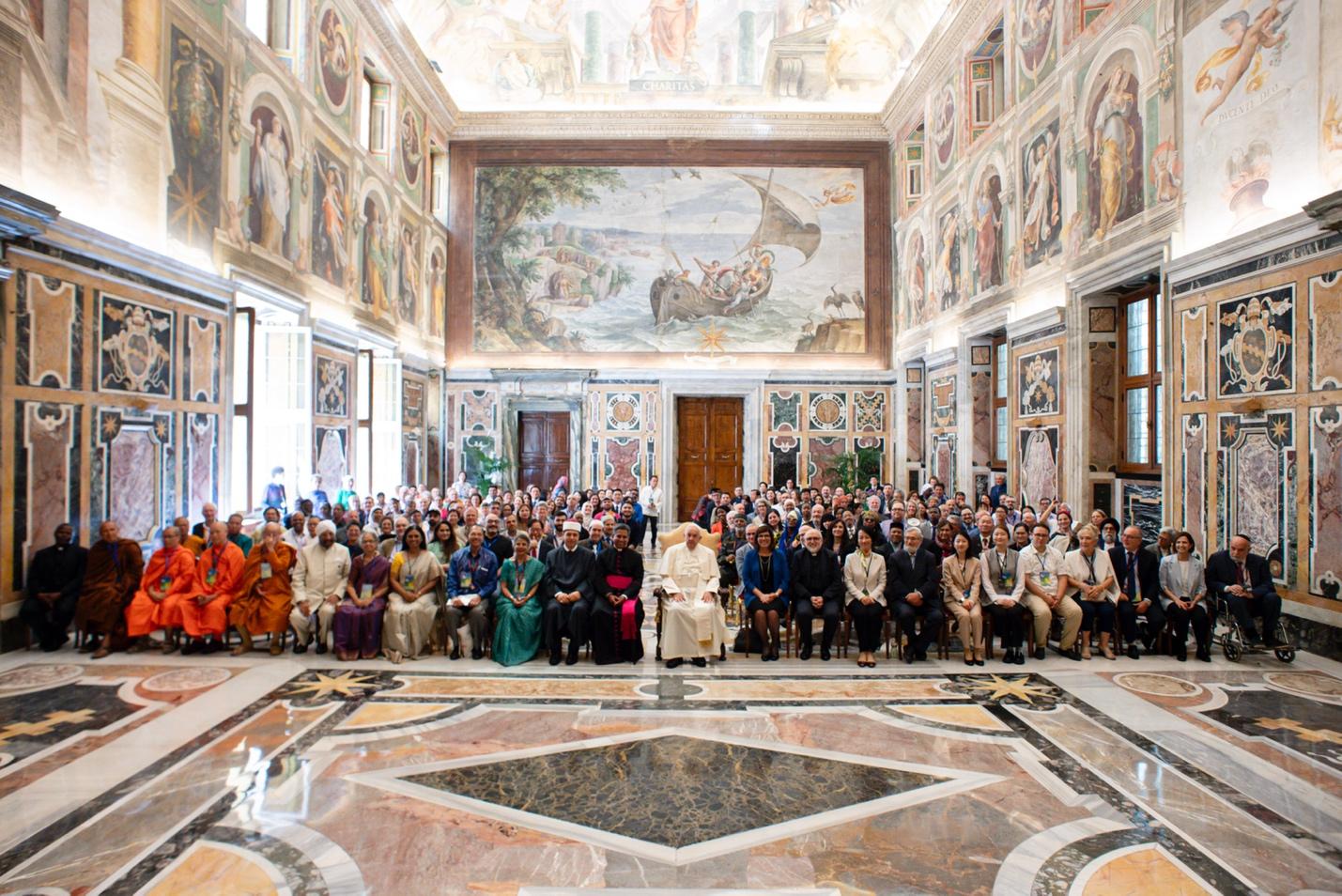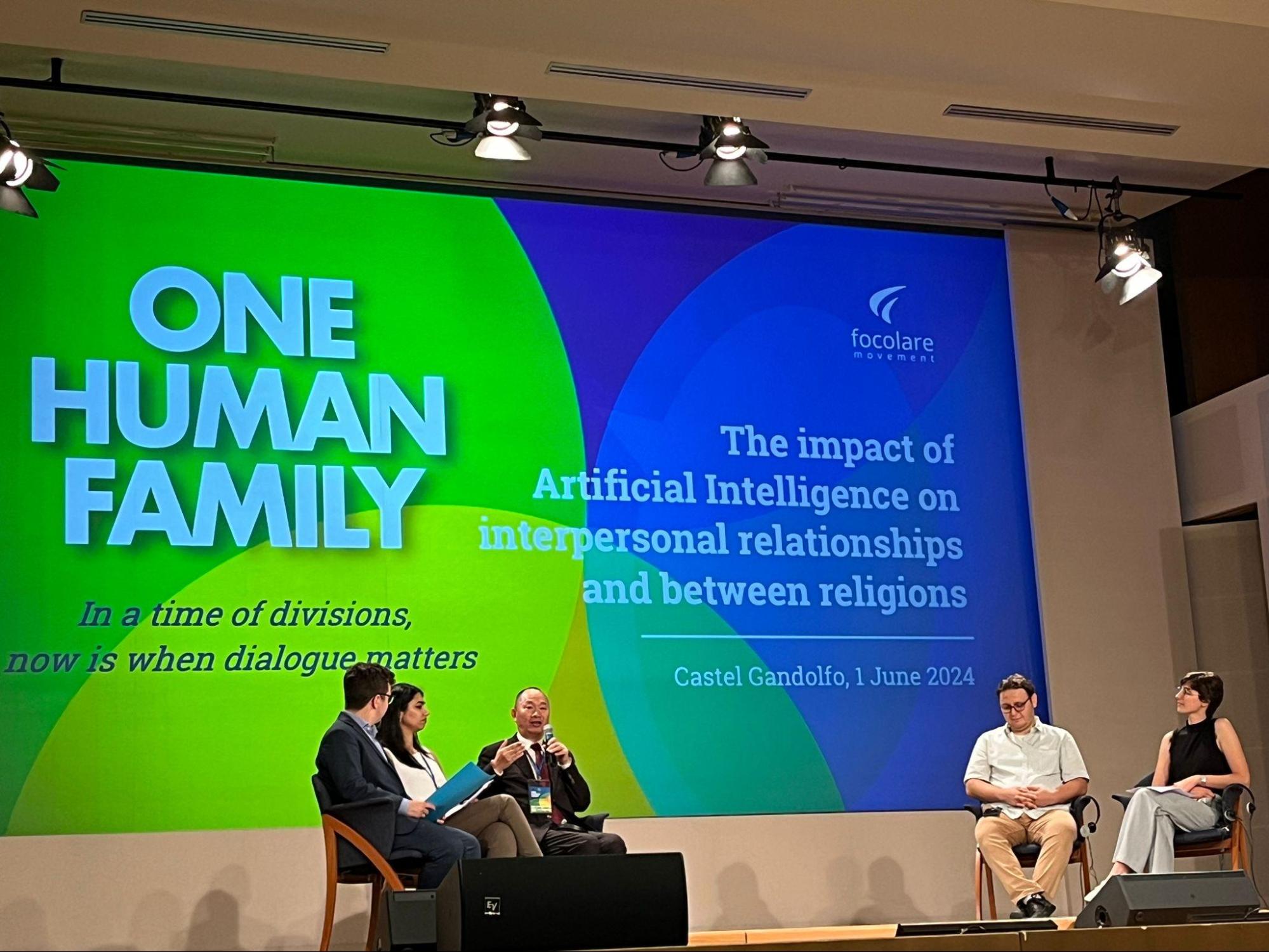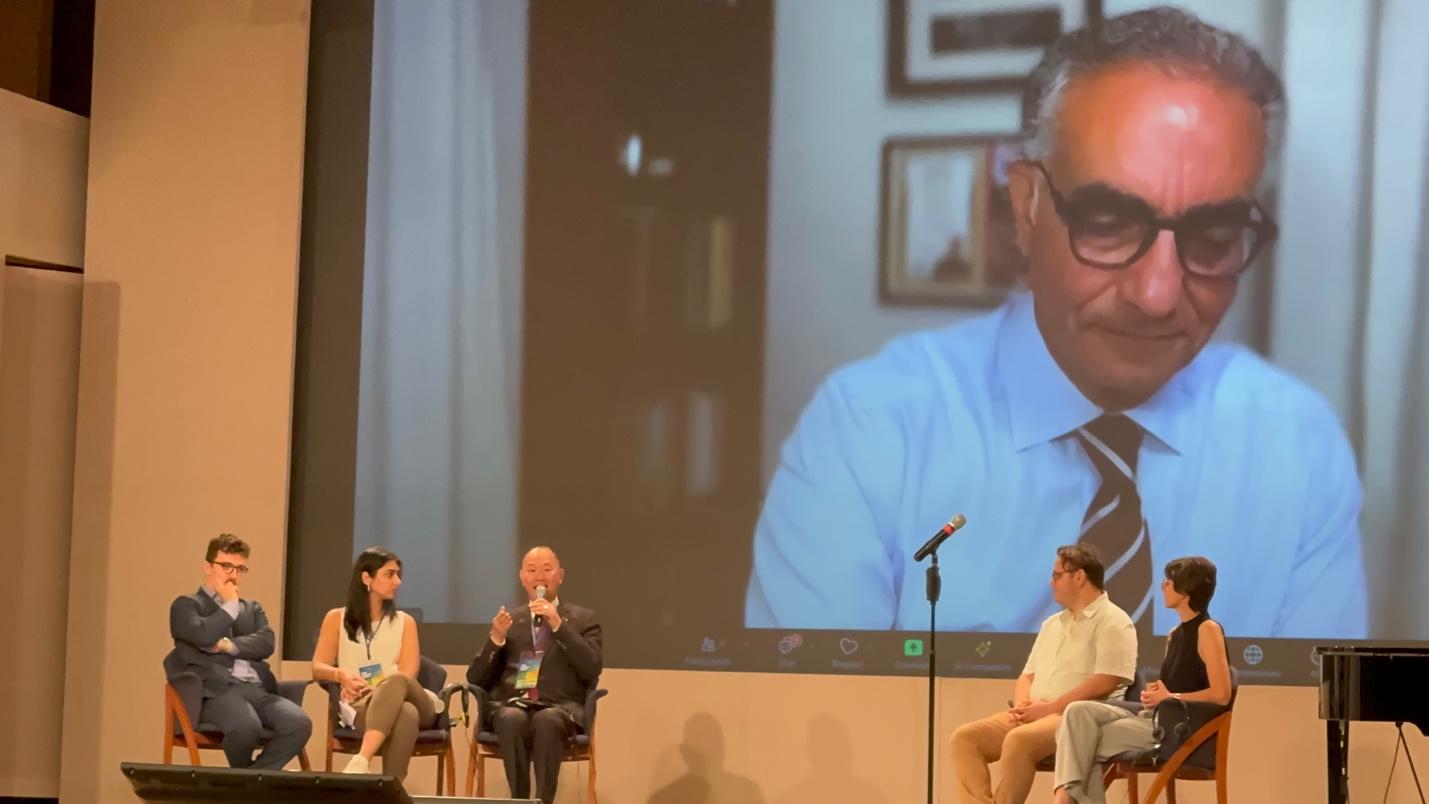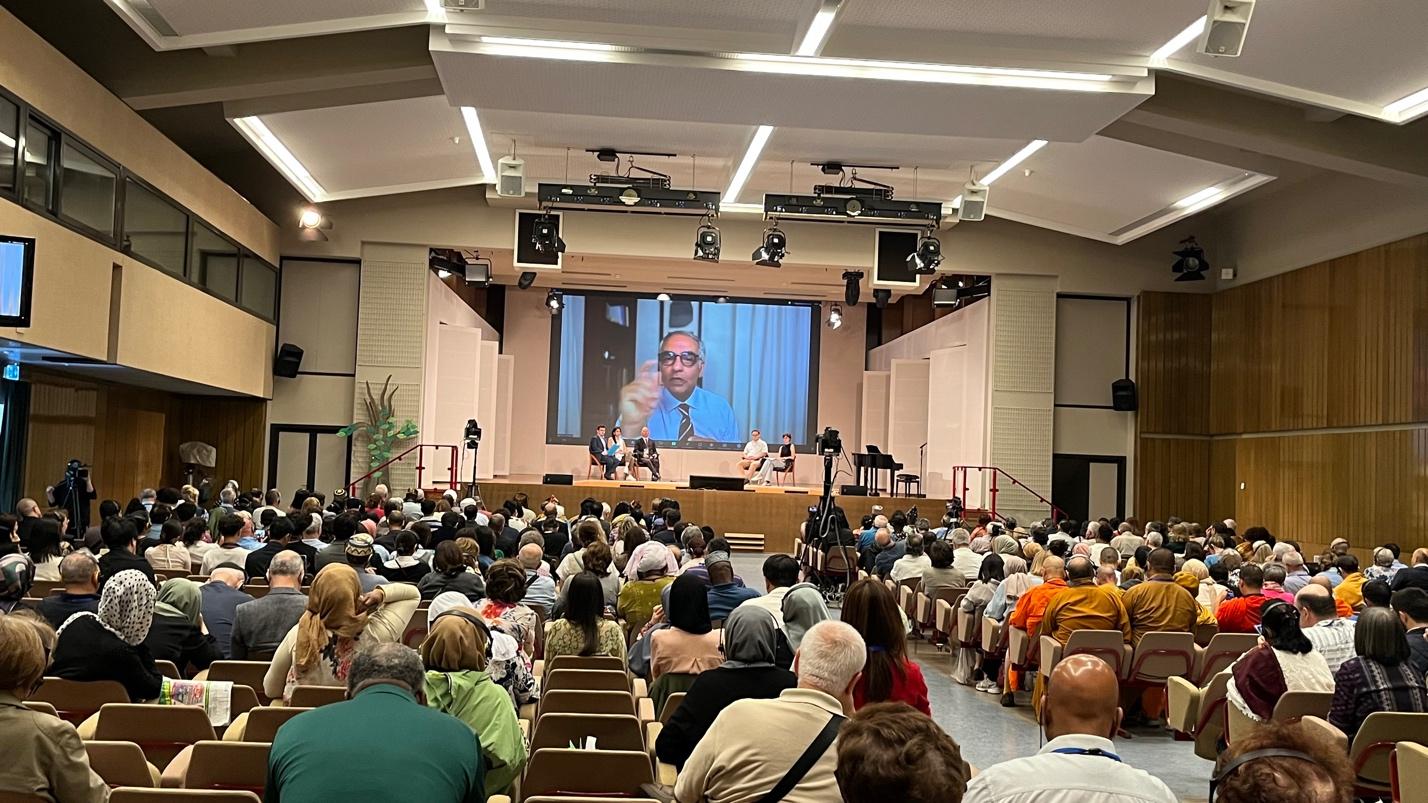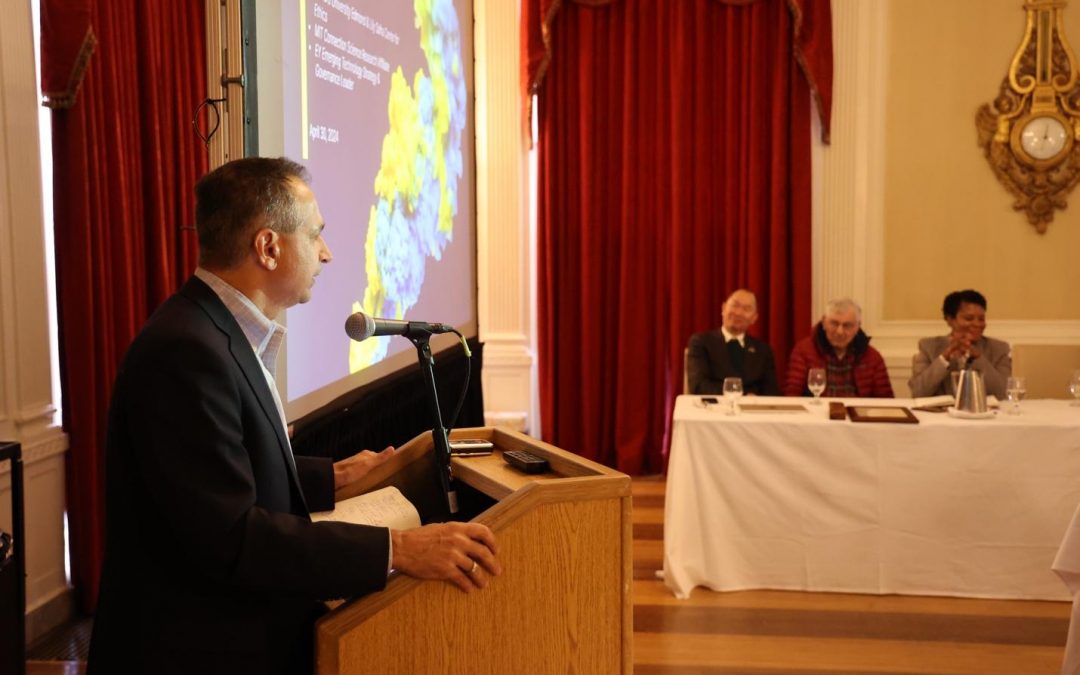
by Editor | Jun 17, 2024 | Event Updates, News
While there has been much discussion around the responsible development and deployment of AI, how these responsibilities arise and apply to specific roles in business is less discussed. The Directors’ AI Ethics Forum aims to address this gap for corporate board members, bringing together a select group of leaders committed to advancing AI initiatives with integrity and responsibility. Participants will convene at Harvard Business School to discuss the critical intersection of AI opportunity, governance, and ethics. This Forum will explore key ethical issues related to the advancement of AI capabilities across various business sectors and aims to develop practical approaches to address the ethical issues that arise for corporate directors.
Attendees will participate in sessions led by Harvard professors, researchers, and other scholars, engaging in this important dialogue to share valuable experiences and gain insights from peers and industry experts.
This event is co-sponsored by Harvard Business School, the Edmond & Lily Safra Center for Ethics, the Berkman Klein Center for Internet & Society, and the GETTING Plurality Research Network of the Allen Lab for Democracy Renovation.
Boston Global Forum contributes the Paper “Business Leaders to Build “The Knowledge Platform for AI and Ensure Equality of Opportunity in AI” to the AI Ethics Forum. Jeff Saviano, a BGF Executive Board member, is a key of organizers of the Forum.
DIRECTORS’ AI ETHICS FORUM
8:00 – 8:30 AM DAY 1 – JUNE 1 7, 2024
MEREDITH ROOM | SPANGLER CENTER | HARVARD BUSINESS SCHOOL
8:30 – 9:15 AM Check In & Continental Breakfast Welcome, Introductions, Framing the Forum
AGENDA
5:00 – 5:45 PM Arrival & Registration
5:45 – 6:30 PM Cocktail Reception
6:30 – 8:30 PM Dinner & Opening Remarks
DAY 2 – JUNE 18, 2024
HAWES HALL | HARVARD BUSINESS SCHOOL
Discuss Forum objectives and the importance of corporate board oversight of its AI program: Why should companies pursue an ethics-based approach to AI governance?
9:15 – 10:30 AM AI: Foundations, Opportunities & Risks
Review the evolution of AI, the creation of new AI opportunities, AI risks to business and society at large, and emerging ethical AI principles.
10:30 – 10:45 AM Break
10:45 – 11:45 AM Practical Frameworks for AI Governance
Review current strategies addressing responsible AI governance, advance a practical AI ethics framework, and ground AI governance in the ‘stakeholder capitalism’ framework.
11:45 AM – 12:45 PM Legal & Regulatory Landscapes
Review board oversight standard articulated by the 1996 Caremark decision and its progeny, and extend this oversight standard to AI governance, and survey global developments.
12:45 – 2:00 PM Lunch & Lightning Talks
2:00 – 2:45 PM Extended Ethical Practices
Advance AI ethical practices and frameworks that yield benefit for both society and the business sector.
2:45 – 3:30 PM Forum Closing & Next Steps
Identify key takeaways from the Forum and discuss opportunities to advance the field of practical AI ethics for corporate boards and management teams.

Jeff Saviano, BGF Board Member

by Editor | Jun 17, 2024 | Global Alliance for Digital Governance
On June 1, 2024, the International Inter-religious Conference at the Vatican marked a historic milestone with the groundbreaking ideas presented by Boston Global Forum (BGF) CEO Nguyen Anh Tuan. During the panel titled “The Impact of Artificial Intelligence on Interpersonal Relationships and Between Religions,” Tuan called upon all participants of the conference, leaders of religions, distinguished thinkers, innovators, and companies to join in taking action for equality of opportunities in AI.
In his address, Nguyen Anh Tuan emphasized the crucial role of interfaith and interreligious cooperation in bring their spiritual values to build the Knowledge Platform for AI and announced that the Boston Global Forum would collaborate with religious leaders to ensure equality of opportunity for every person, company, country, and religion in AI. This initiative aims to foster a new democracy, happiness, and safety for humanity.
Pope Francis delivered a welcome speech to participants of the conference on June 3, 2024, at the Clementine Hall, Vatican.
On Friday afternoon June 14, 2024, Pope Francis addressed the G7 leaders’ summit in Puglia, Italy.
He is the first Pope to ever address the forum, which brings together the leaders of the US, UK, Italy, France, Canada, Germany, and Japan.
The ’techno-human condition’
Noting that AI is “above all a tool”, the Pope spoke of what he called the “techno-human condition”.
He explained that he was referring to the fact that humans’ relationship with the environment has always been mediated by the tools that they have produced.
Some, the Pope said, see this as a weakness, or a deficiency; however, he argued, it is in fact something positive. It stems, he said, from the fact that we are beings “inclined to what lies outside of us”, beings “radically open to the beyond.”
This openness, Pope Francis said, is both the root of our “techno-human condition” and the root of our openness to others and to God, as well as the root of our artistic and intellectual creativity.
https://www.vaticannews.va/en/pope/news/2024-06/pope-g7-artifical-intelligence-objective-neutral.html

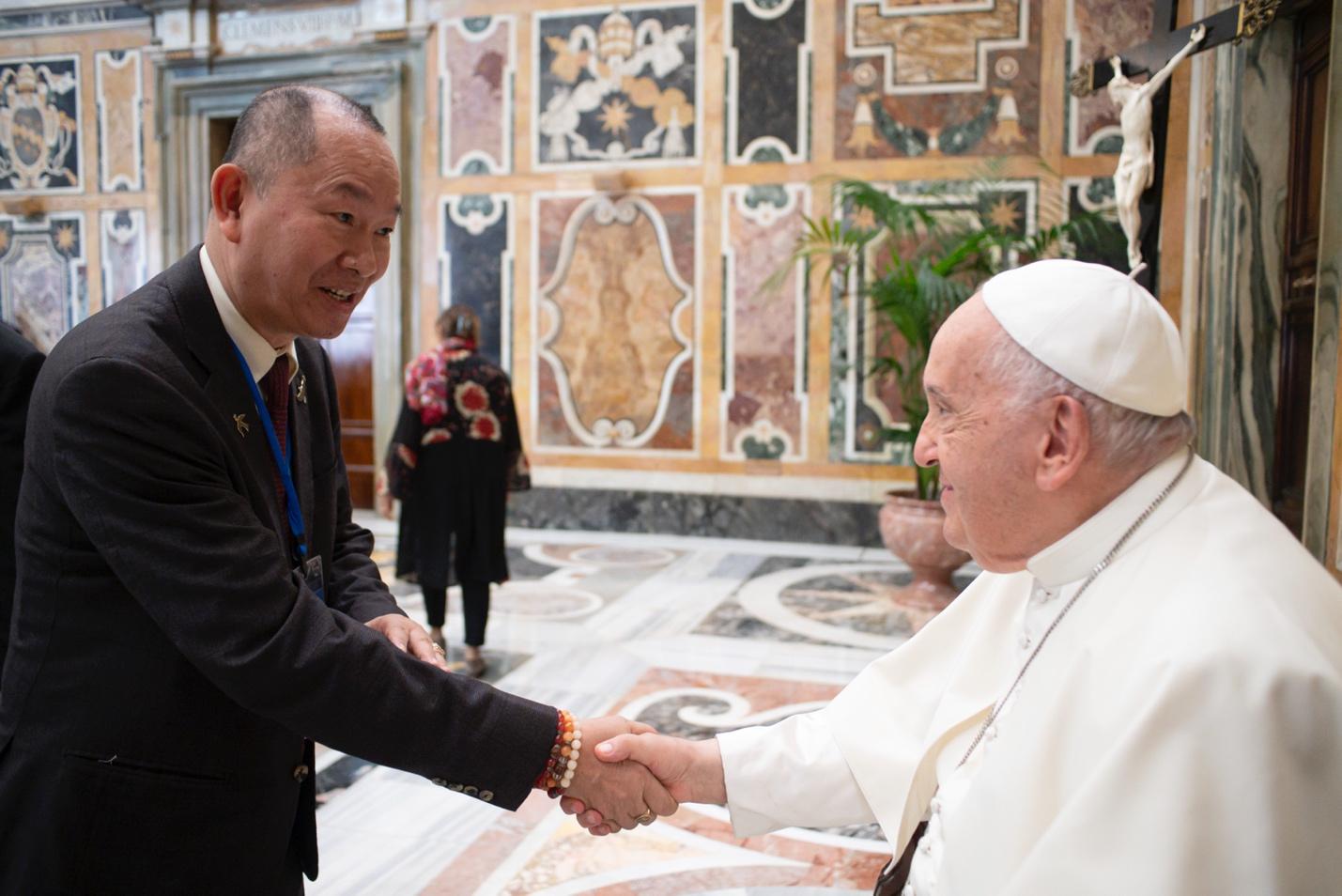
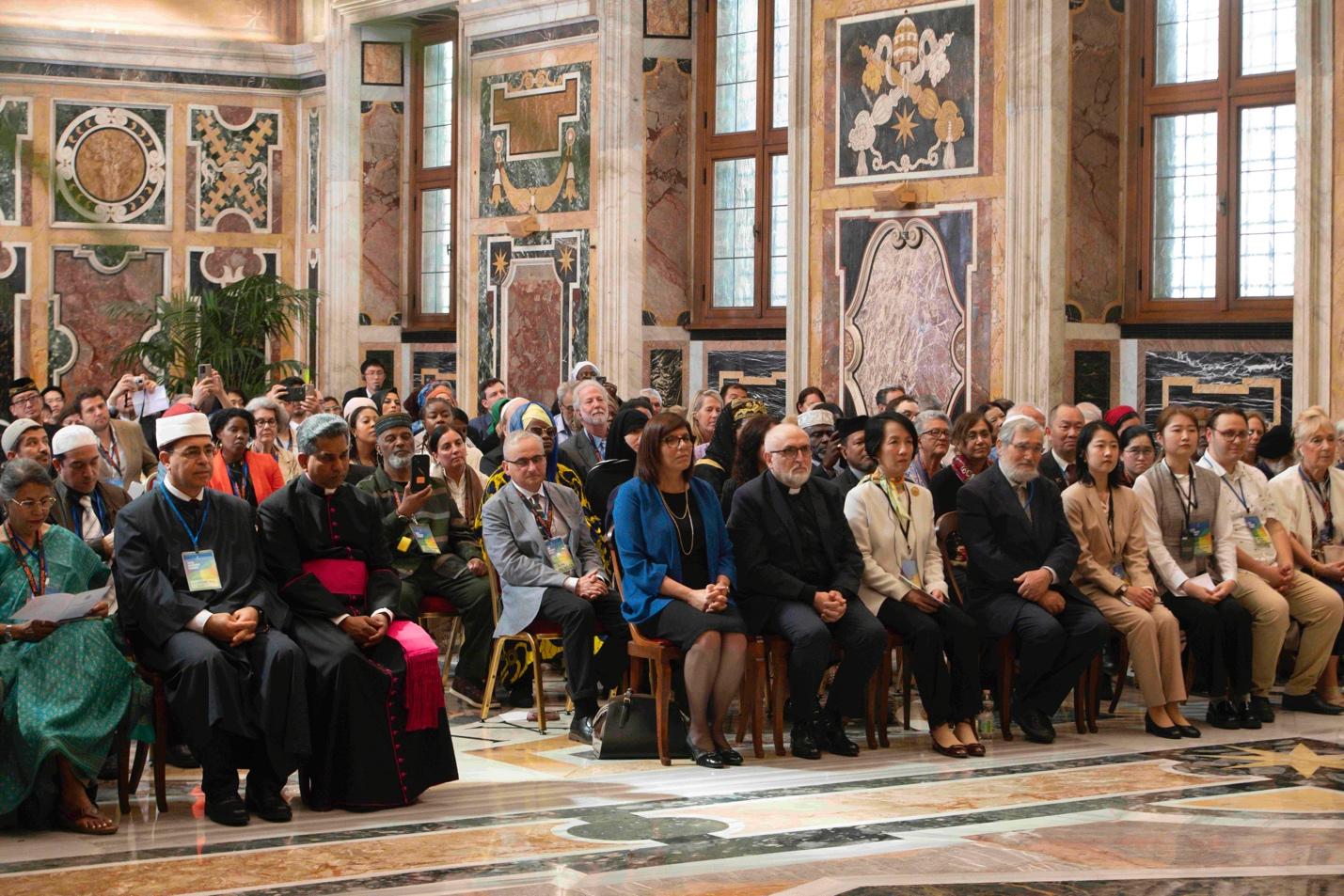

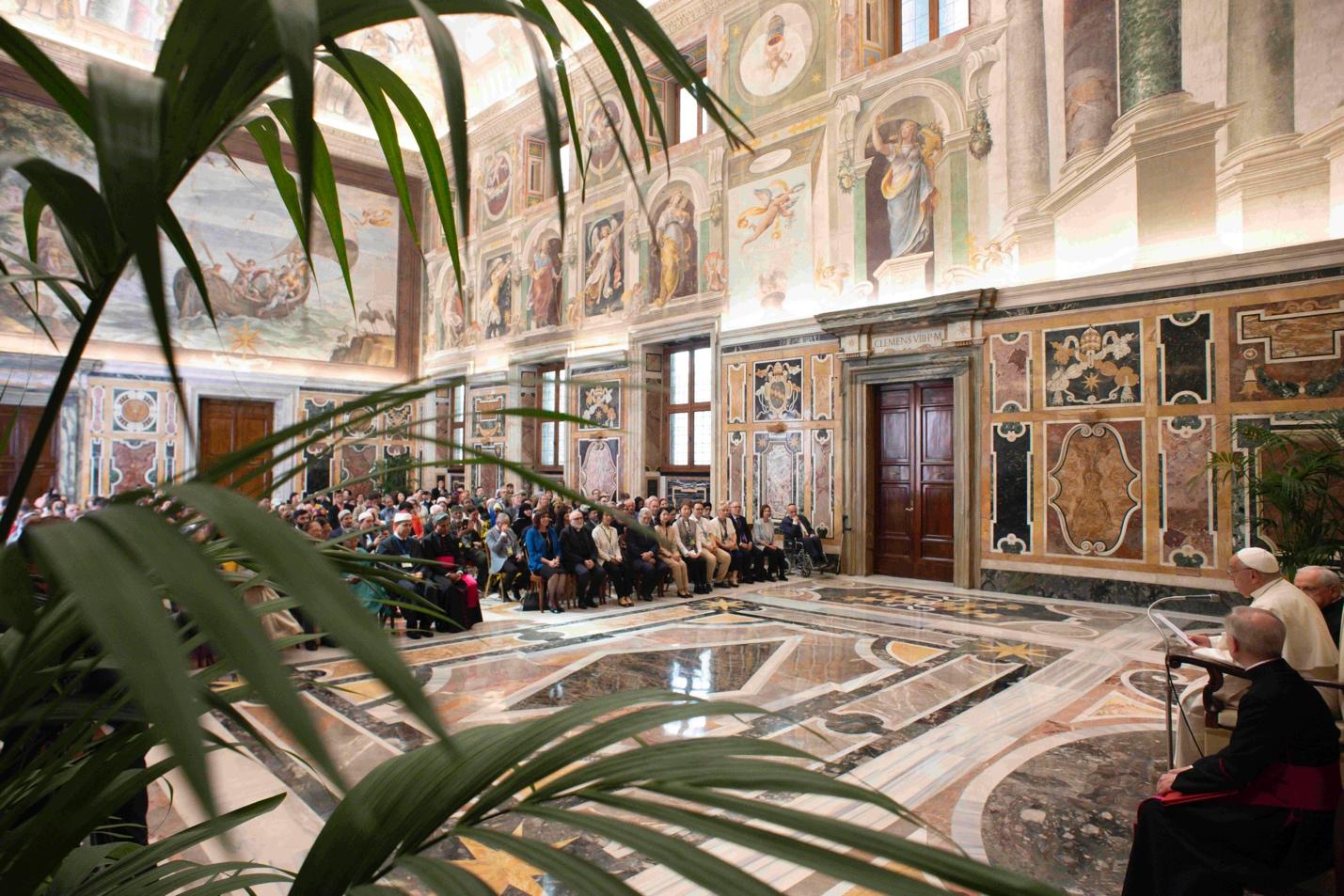
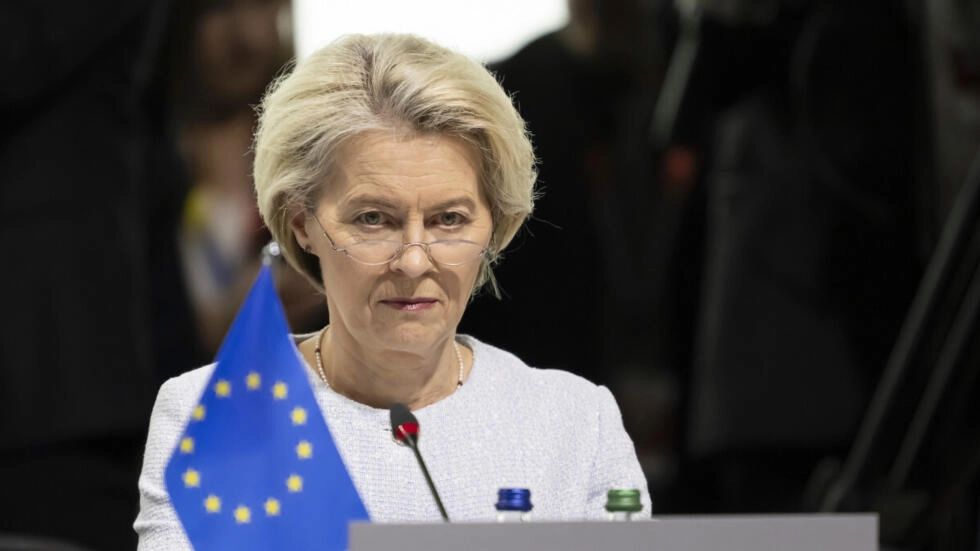
by Editor | Jun 17, 2024 | News
At the G7 Leaders’ Summit kick-off, 2020 World Leader for Peace and Security Award, President of European Commission Ursula von der Leyen, delivered her message on the G7 Summit 2024 in Bari, Italy:
- “In turbulent times, the strongest message we can send is unity.
Unity for Ukraine’s freedom.
Unity for a peaceful and stable Middle East and the three-phase plan.
Unity for a free and open Indo-Pacific.”

Alessandro Della Valle / AP
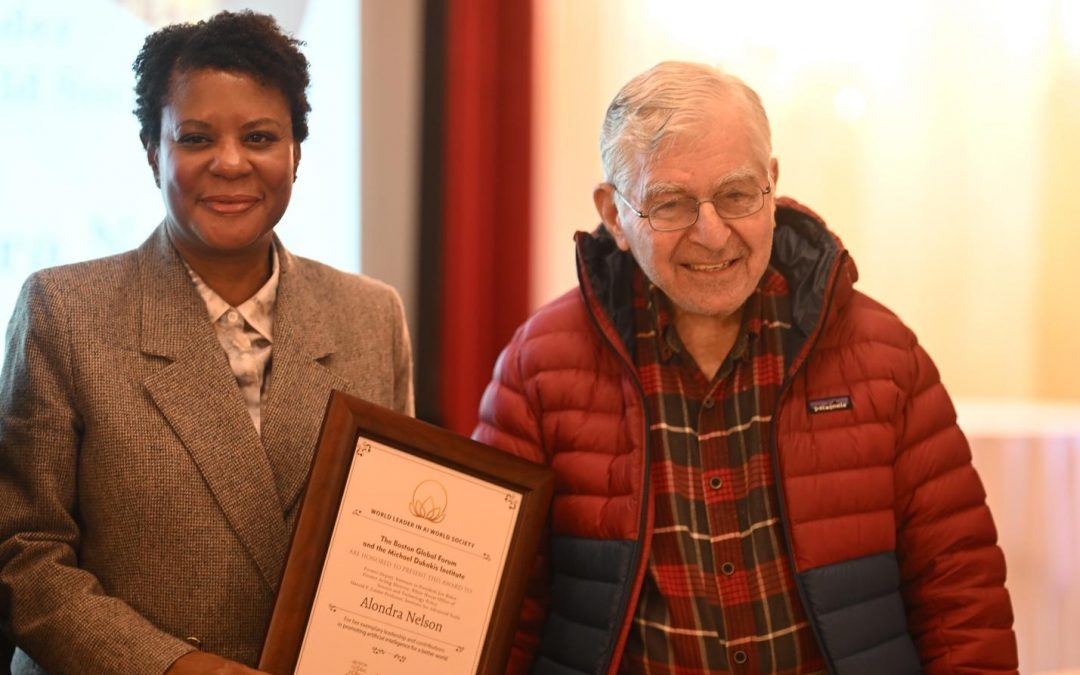
by Editor | Jun 17, 2024 | News
Lila Kee, the General Manager for GlobalSign‘s North and South American operations, as well as the company’s Chief Product Officer.
AI Governance In Action
These key points were top of mind at a recent event I attended, sponsored by the Boston Global Forum (BGF), titled “Governing the Future: AI, Democracy and Humanity.” The event was facilitated by BGF cofounder Nguyen Anh Tuan and attended by leaders in academia, technology and public policy. Dr. Alondra Nelson, Harold F. Linder Professor at the Institute for Advanced Study, also spoke about the importance of ensuring policy innovation keeps up with AI innovation.
My takeaway was that policymakers and stakeholders shouldn’t overly fret about not having a deep understanding of the technology stack behind AI. Instead, they should focus on how AI could help sustain and enhance global initiatives impacting human rights.
Industry initiatives, for example, are focusing on developing standards to distinguish between AI-generated and original images. The AI Governance Alliance advocates for traceability in AI-generated content; this could be achieved through various watermarking techniques. Similarly, C2PA, an industry-led coalition, focuses on the traceability of original and real-world captured content.
https://www.forbes.com/sites/forbestechcouncil/2024/06/13/the-role-of-government-and-industry-in-safeguarding-ai/

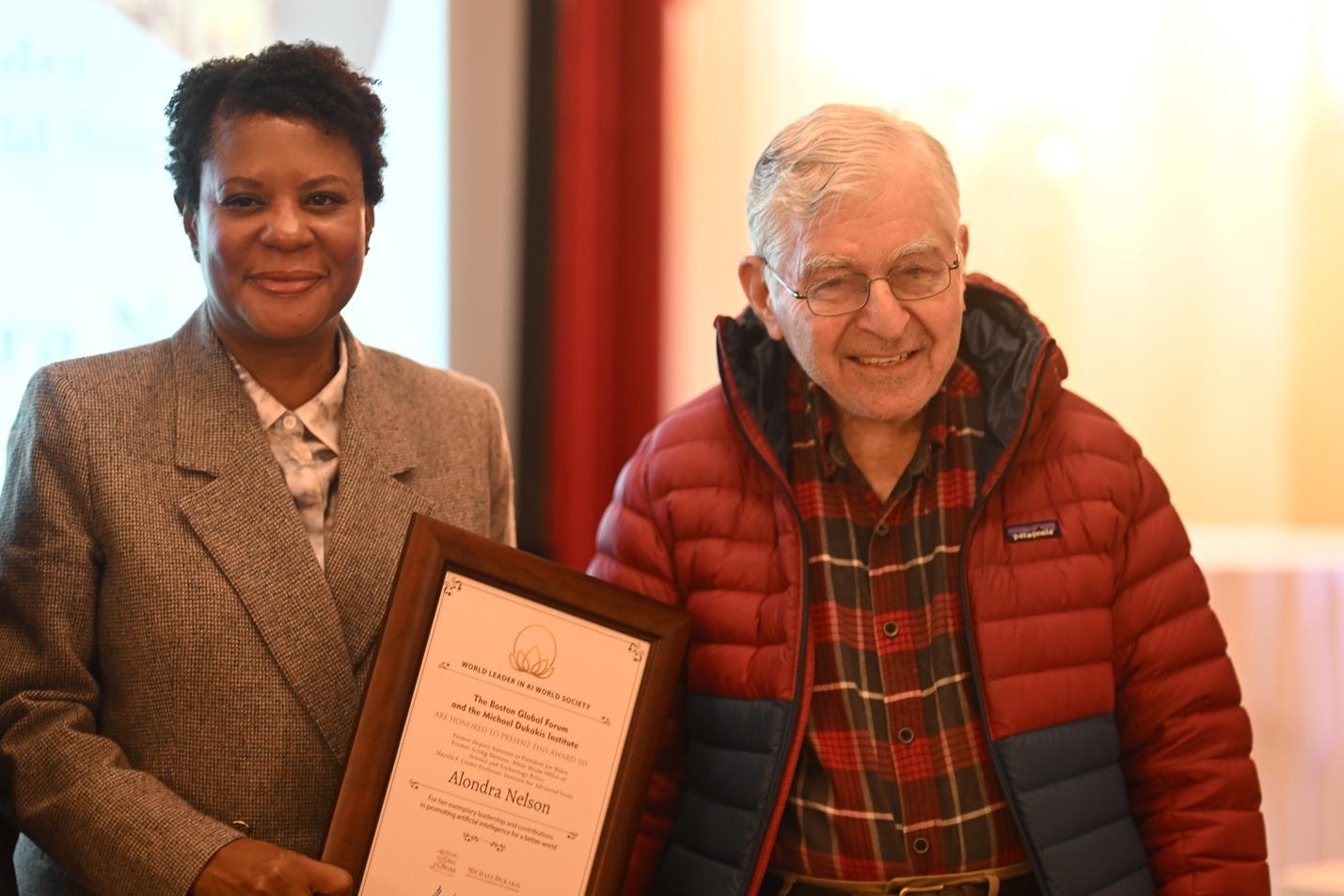
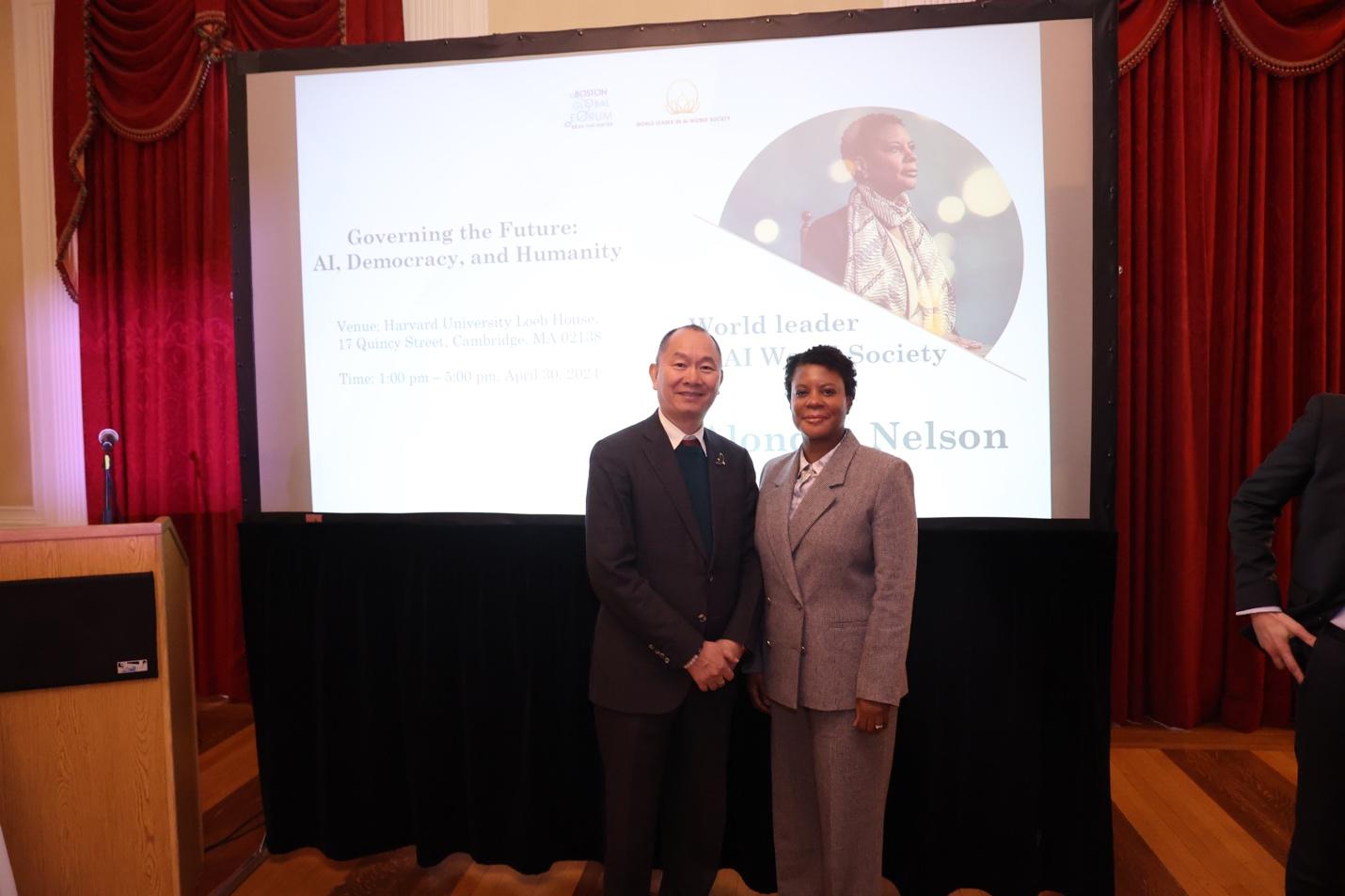
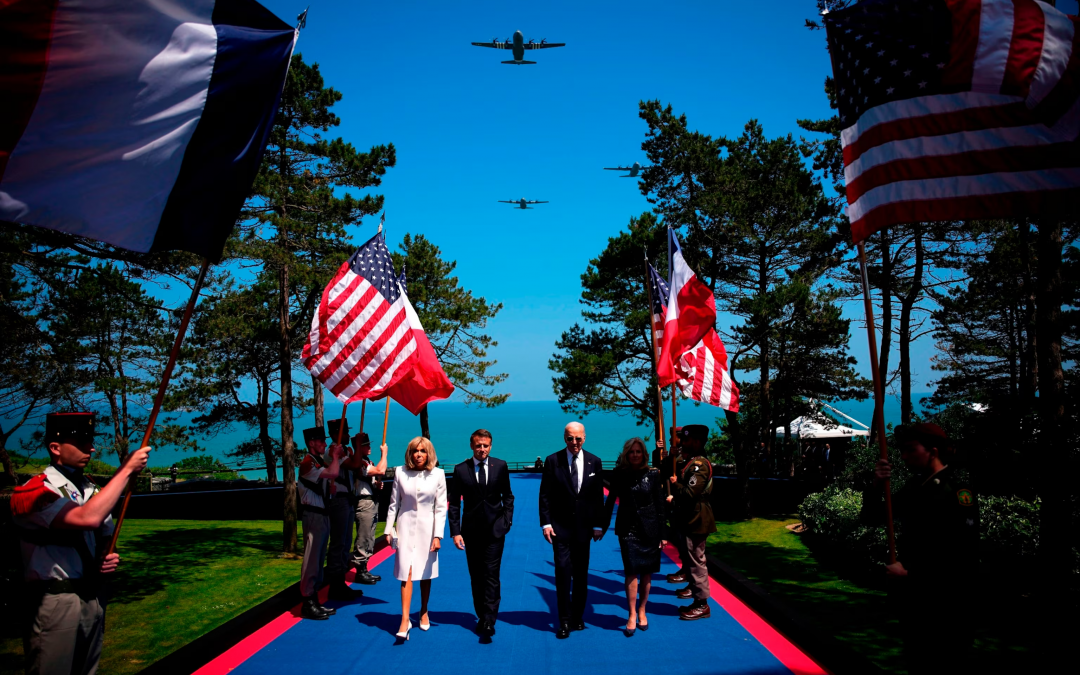
by Editor | Jun 10, 2024 | News
It has been assessed by American and Four Pillars defense officials that the Russian advance on Kharkiv is ‘all but over,’ indicating that Russia has yet again failed to make major advances since 2022, or last year if one counts their gains in the Donbas regions. It is clear over the past year that the Russian invasion of Ukraine has turned into a war of attrition between the two countries, with current frontlines calcifying into status quo. The question now is to see who can outlast their opponent, if this turns into a long attritional war a la Iran-Iraq, and with that, if the conflict remains frozen or ends decisively.
Another thing of note, not to celebrate too early, but it appears the worst factors for Ukraine have passed. After the unsuccessful counter-offensive, events seemed to keep stacking against Ukraine and Zelenskyy: severe lack of ammunition and manpower, the stalling of aid from the Four Pillars, wavering enthusiasm both domestic and international, and Russia’s expansion of its war capacity. This was marked by Russian captures of towns in the Donbas toward the end last year, and many worried if Ukraine could survive a reorganized Russian offensive. Even with their own shortfalls, Ukraine was able to hold out until aid packages began again from the US, and members of the Four Pillars via NATO such as France offered military advisors on the ground – which is helping reinforce the gaps. However, other attritional issues continue to plague them. On the other hand, while Russia has postured strength both domestically and to Ukraine’s supporters, such as threatening to strike NATO members and Putin’s enjoyment of Russian support or apathy towards the war, there have been claims of cracks in the foundation, that Russia may not have time for a major offensive or breakthrough or its economy is overheating.
This month has already seen four notable elections in the world – South Africa, India (a Pillar), Mexico, and the European Parliament. Although not earthshaking like the upcoming ones, they are still interesting indicators of global sentiments vis-a-vis voter’s own domestic concerns and feelings on global issues, where the Four Pillars space is concerned. Upcoming elections this year include the UK, France (Macron in fact called a snap election after the EP election), and of course, the US. Keep in mind that these countries are all Pillars. While not policy or global peace and security specific, these elections are still worth keeping an eye on as a vibe barometer of sorts, and to see the strengths and weaknesses of the rules-based order. On the anniversary of D-Day, as Biden and Macron have done this past week, let us remember the sacrifices made for freedom and democracy that should be upheld and preserved now and eternal.
Articles of the week – India, Mexico, South Africa Went to the Polls. Here’s What We Learned. [Politico]; Biden links WW2 and Ukraine war in D-Day address [BBC]
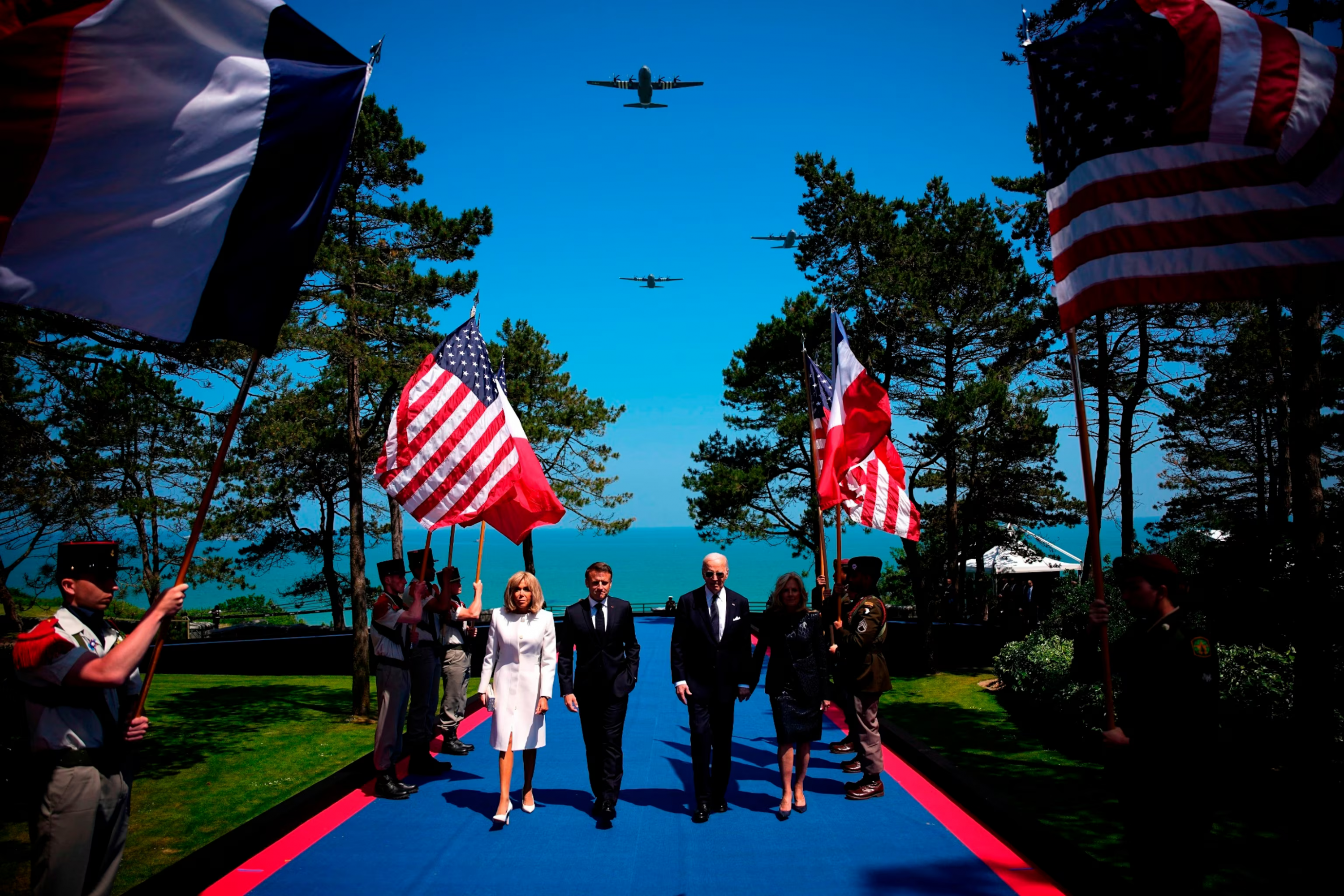
Minh Nguyen is the Chief Editor of the Boston Global Forum and a Shinzo Abe Initiative Fellow. She writes the Four Pillars column in the BGF Weekly newsletter.
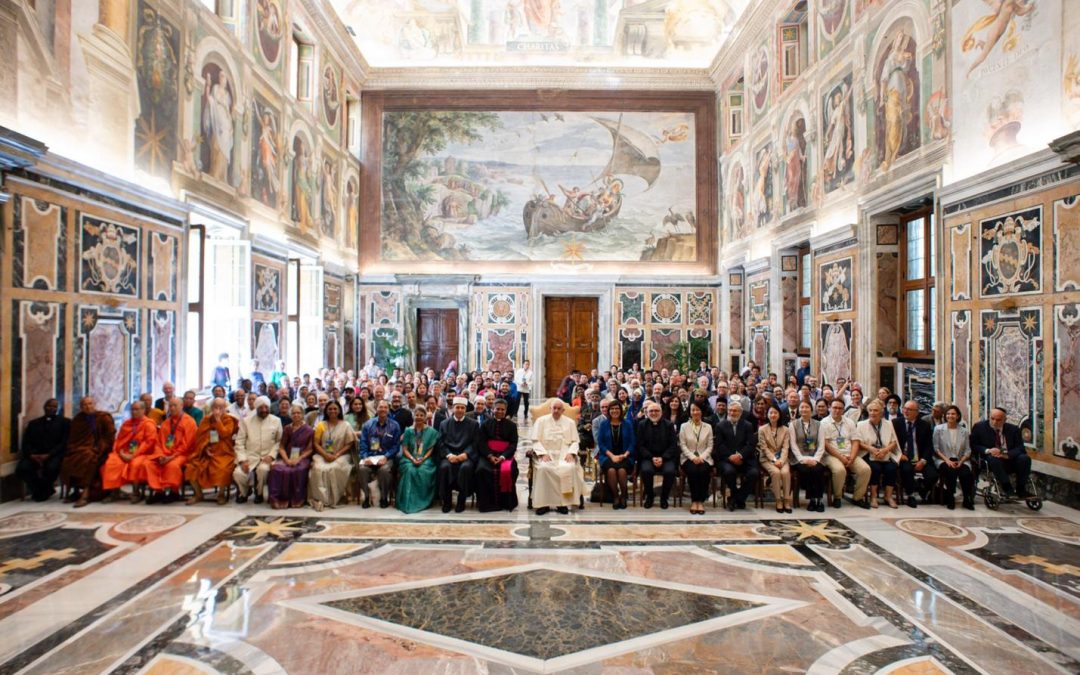
by Editor | Jun 9, 2024 | Event Updates, News
Dear brothers and sisters, good morning!
I greet the President of the Focolare Movement, to whom I say that I am praying very much for your country which is suffering at this time. I also warmly welcome all the participants in this Interreligious Conference. I express my gratitude for the perseverance with which the Work of Mary continues the journey begun by Chiara Lubich, fostering unity with people of non-Christian religions who share the spirituality of unity. This was a revolutionary journey that did much good for the Church. It is an experience animated by the Holy Spirit, rooted, we can say, in the heart of Christ, in his thirst for love, communion and fraternity.
Indeed, it is the Spirit who opens paths of dialogue and encounter, at times surprising ones. This happened more than fifty years ago in Algeria, when an all-Muslim community adhering to the Movement was born. It also happened with Chiara Lubich’s meetings with leaders of various religions: Buddhists, Muslims, Hindus, Jews, Sikhs, and others. This dialogue has flourished over time, as evidenced by your presence today.
The foundation of this experience is the love of God expressed through mutual love, listening, trust, hospitality and getting to know one another, all the while fully respecting each other’s identities. Over time, friendship and cooperation have grown in seeking to respond together to the cry of the poor, in caring for creation and in working for peace. Through this journey, some non-Christian brothers and sisters have shared in the spirituality of the Work of Mary, or in some of its characteristic traits, and live according to them amongst their own people. With these men and women, we transcend dialogue, we feel like brothers and sisters, sharing the dream of a more united world, in the harmony of diversity.
Dear friends, your witness is a source of joy and a source of consolation, especially in this time of conflict, when religion is often misused in order to fuel division. Indeed, interreligious dialogue “is a necessary condition for peace in the world, and so it is a duty for Christians as well as other religious communities” (Evangelii Gaudium, 250). I encourage you, then, to move forward and always be open.
May the Lord bless all of you. May he grant his blessing to each one of you, for the Lord is close to us all. May the Lord bless you. Amen.



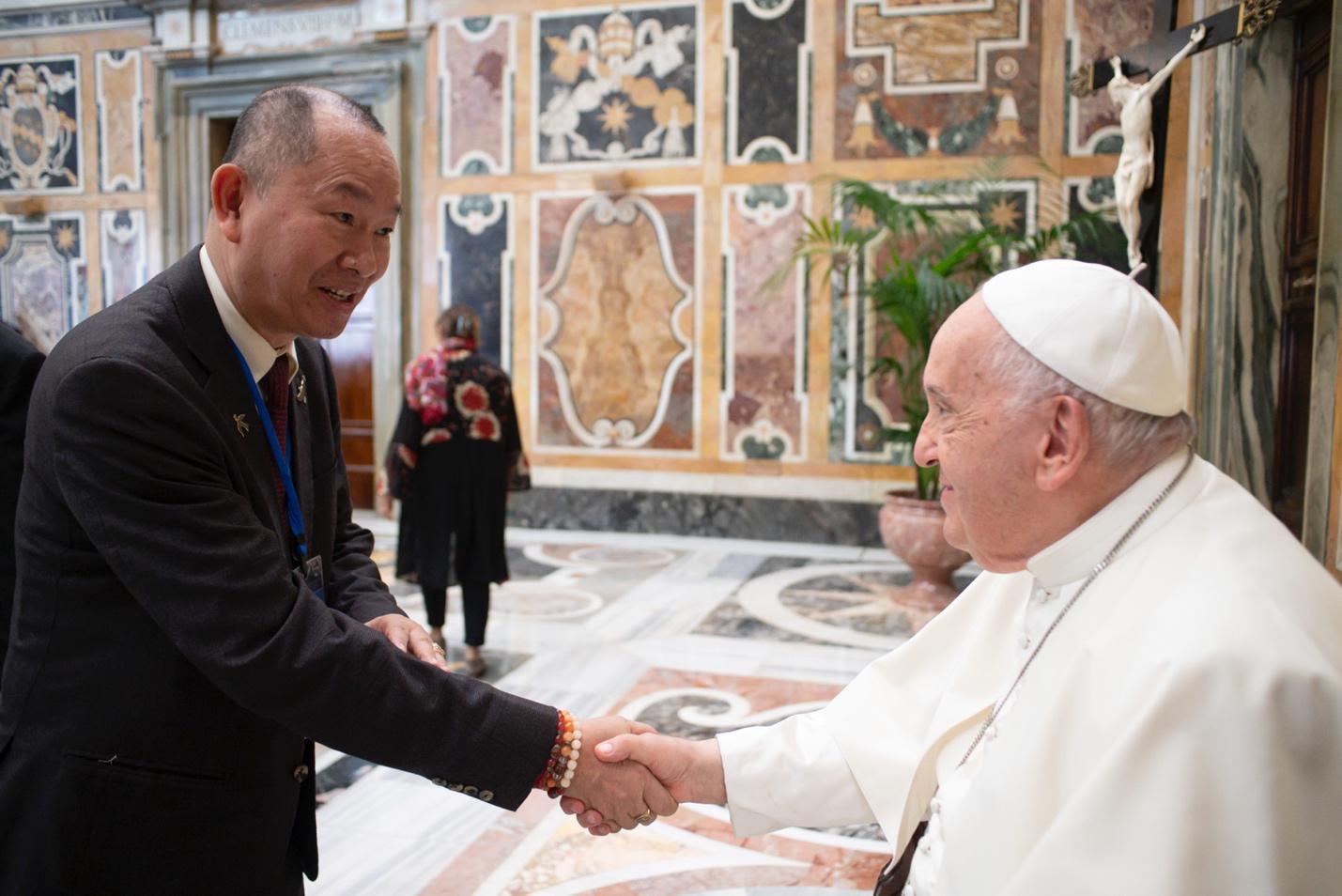
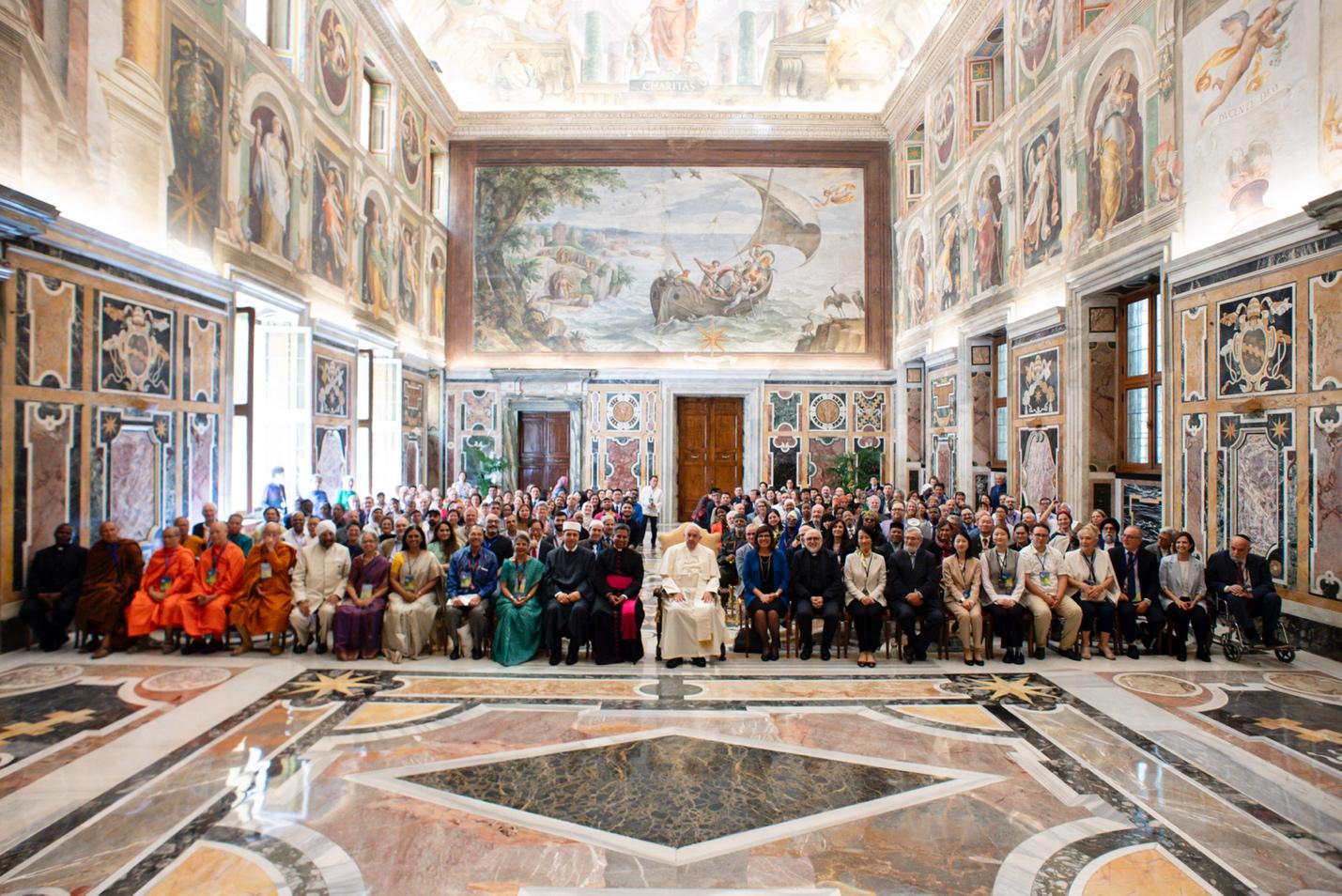
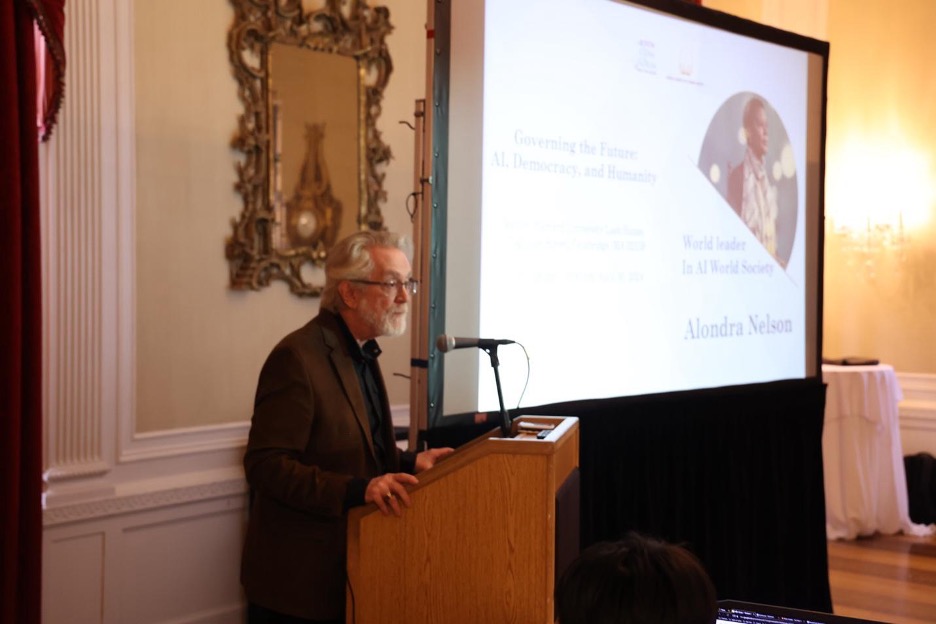
by Editor | Jun 9, 2024 | Global Alliance for Digital Governance
The MIT professor describes practical approaches to improving the internet.
This article was originally published on Stanford Human-Centered AI -BGF
For Alex “Sandy” Pentland, a longtime professor of information technology at MIT, big societal questions have always been top of mind. And that focus has led to big impact. His group developed a digital health system for rural health workers in developing countries that today (with support from the Gates Foundation) guides health services for 400 million people. Another effort resulted in the deployment of tools for ensuring fair and unbiased social services support for 80 million children across Latin America. Another spinoff developed open-source identity and authentication mechanisms now built into most smartphones and relied on by 85% of humanity.
In 2008, Pentland began co-leading discussions at Davos that were widely recognized as the genesis of the European Union’s General Data Protection Regulation (GDPR). Today, he serves on the board of the UN Foundation’s Global Partnership for Sustainable Development Data, which uses data to track countries’ progress toward 17 different sustainability goals.
This spring, Pentland joined Stanford HAI’s Digital Economy Lab as a center fellow and the faculty lead for research on Digital Platforms and Society. Here he hopes to continue building a better digital ecosystem for all and to address the ways in which social media and AI are impacting democracy and society. We recently sat down with Pentland to ask him about his plans.
What do you mean by building a better digital ecosystem?
Thirty to forty years ago, we suddenly had the internet. While we’ve done many good things with it, we’ve also done some questionable things. And people are scared about what’s going to come next, such as bad actors using AI in nefarious ways; widespread misinformation altering our shared community understanding; and cyberattacks that affect our financial system. I’d like to see us build a better digital ecosystem so that we can have a thriving, creative, safe society.
What does that look like in practical terms?
There are a variety of ways we can achieve that goal. For example, courts and law enforcement need a way to uncover the real identity of online actors.
A second idea is that we need to draw a line between individual expression and mass expression. For example, consider the case where influencers often have more than a million “friends” on social media. Anyone with that many people following them can make money and build a reputation while saying whatever they want. And I think these overly powerful voices ought to be treated like businesses and not like individuals. They shouldn’t be able to cry “fire” in a crowded theater or tell outright lies. Those are basic standards we demand of other businesses. TV news shows or newspapers can’t publish something just to generate outrage. Digital media should be responsible for taking the same kind of care to protect the public good. If you’re going to express your ideas to a million people, then you’re a business and you ought to be regulated like a business.
We also need to reduce partisan animosity online. Currently, digital media are designed to get us to react quickly, which results in unthinking responses that in turn lead to cascades of behavior where everyone becomes outraged. We need a system that instead encourages people to communicate in ways that support democratic processes rather than tearing them apart. Large-scale experiments find that online discussions are improved when people are encouraged to reflect a little bit on what they are about to say. For example, we see less division and outrage online when we add an extra step that allows time for reflection before replying or forwarding, or add a prompt to consider what a comment will do to your reputation.
You have said we need to rethink the internet’s architecture. What does that mean?
We need to have new security standards. In the early days of the internet, the developers didn’t include important security and digital identity features because users were mostly government employees and university faculty. But today, everyone is on the internet and that means bad actors have an opportunity to do all sorts of damaging things. Nations that don’t like us can disrupt our cyber world through distributed attacks, bots, and troll farms. People can spread mis- and disinformation on social media without reprisal. And these behaviors destroy our ability to discuss things meaningfully with each other and to make rational decisions.
In some cases, fixing the problem will require changing often subtle little things down in the guts of the internet. As an example, if someone is producing 50,000 tweets a day, that’s a bot, not a human. That’s an obvious case, but there are other things we can do to find bots more efficiently, determine when foreign nations are interfering in elections, and better deal with ransomware and cyberattacks. The problems we have now evolved because the architecture of the internet was never completed. And now maybe the time has finally come to finish the job.
So, at the Stanford Digital Economy Lab, we’re going to try out various fixes experimentally to see what sorts of economic and social incentives work and then hopefully make change happen.
While at Stanford you’re also joining the team of researchers including Condoleezza Rice, Erik Brynjolfsson, and Nate Persily who are working on a series of essays dubbed the “Digitalist Papers.” Tell me about that.
The Digitalist Papers will be modeled after the Federalist Papers, which were a series of 85 essays written by three people in 1787-88 arguing for the ratification of the U.S. Constitution. They made the case for the creation of a country by design rather than by accident or force.
Today, we have the internet, smartphones, and AI, so perhaps there’s a better form of governance that we can design – something that’s more transparent, more accountable, and perhaps wiser. And so, for the Digitalist Papers, we’re assembling experts from around the world from a variety of fields – economics, politics, law, technology – to write essays about how the intersection of technology with each of these fields might lead to better governance.
We’re hopeful that putting these essays out in the world will change the terms of the discussion and shift what people believe they should be working toward.
We’ve been talking about improving the digital ecosystem in general. Do you have particular thoughts about how AI currently plays – or will play – a role in our digital ecosystem?
First of all, AI is not new. The first AIs in the 1960s were logic engines. And then came expert systems, and then came collaborative filtering. All of these are pervasive today and have had some negative effects, from centralizing data like never before to allowing for a surveillance society.
So, we should think about what the current wave of AI is going to do before it really takes off. And it’s not artificial general intelligence, or AGI, that worries me. It’s that AI is becoming pervasive in so many parts of our lives, including our medical system, our transportation system, and our schooling system. It’s going to be everywhere, just like the previous waves of AI were. And we need to make sure that it’s prosocial.
To me, AI has always been and continues to be a way of finding and using patterns in data. So, if you want to control AI, you have to control the data it feeds on by demanding privacy rights and ownership rights over data. Without that, AI will just run amok. Data are like the food for AI, and if you want to control AI, you have to control the data.
What is it that drives you and keeps you doing this work?
I think that developing a humanistic digital infrastructure is one of the best things a person can do right now. If I can help create a world that is human centered and that harnesses all these new digital tools and AIs for the good of society, that would be about the best thing I could do with my life just because it is so transformative.

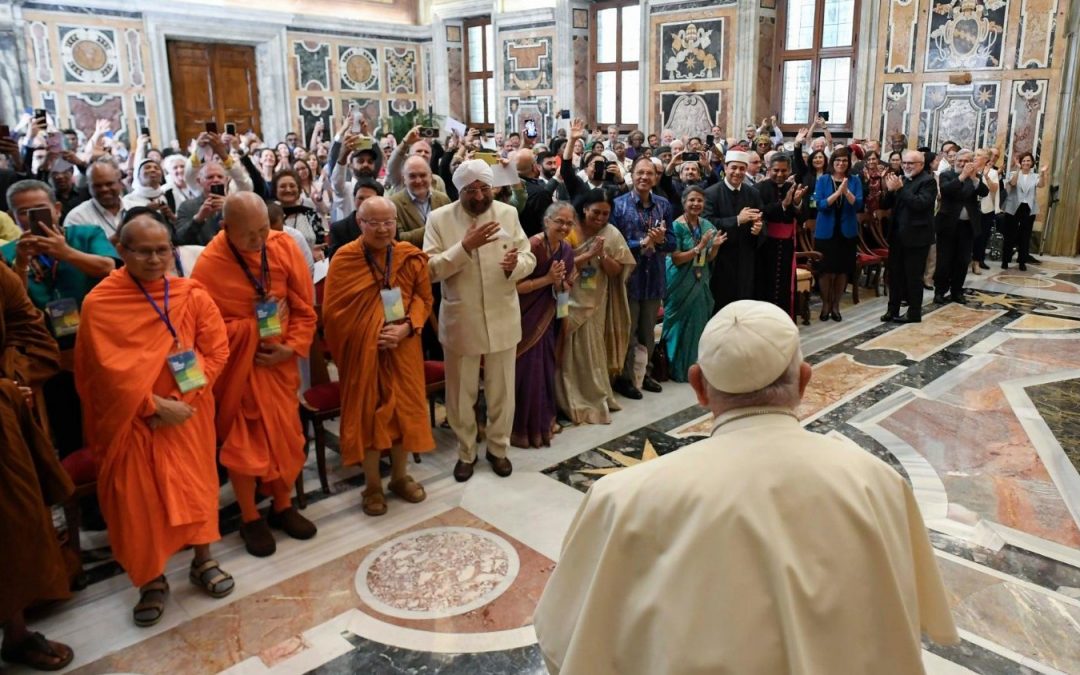
by Editor | Jun 9, 2024 | News
Pope Francis praises the Focolare Movement for fostering interreligious dialogue and for their efforts in unity, mutual respect, and peacebuilding.
By Francesca Merlo
This article was originally published on Vatican News -BGF
Greeting members of the Focolare Movement, in Rome for an Interreligious Conference, Pope Francis opened with a moment of solidarity with the Movement’s President, Margaret Karram, born in Israel to a Palestinian family. As he greeted her the Holy Father assured her of his prayers for her homeland, which he said is “suffering so much at this time”.
Speaking after the event, the President of the Movement described her interpretation of the Pope’s words as being that the Holy Father “prays for my land, where two peoples live and two peoples suffer”.
In line with this, Pope Francis highlighted the Focolare Movement’s perseverance in “fostering unity with people of non-Christian religions who share the spirituality of unity”.
This, he said, is an experience which is “animated by the Holy Spirit, rooted, we can say, in the heart of Christ, in his thirst for love, communion and fraternity”.
Opening the path of encounter
Pope Francis continued by emphasising that it is indeed the Spirit who “opens paths of dialogue and encounter”, adding that at times they are “surprising ones”. An example of this, said the Pope, took place more than fifty years ago in Algeria, “when an all-Muslim community adhering to the Movement was born”. This interreligious dialogue has flourished over time, “as evidenced by your presence today”, he added.
The Holy Father then went on to address the foundation of this experience, which he described as being “the love of God expressed through mutual love, listening, trust, hospitality and getting to know one another, all the while fully respecting each other’s identities”. Over time, he continued, friendship and cooperation have grown in seeking to respond together to the cry of the poor, in caring for creation, and in working for peace.
The dream of unity
“Through this journey, some non-Christian brothers and sisters have shared in the spirituality of the Work of Mary, or in some of its characteristic traits, and live according to them amongst their own people” noted the Pope. He explained that we transcend dialogue with these men and women with whom we feel like brothers and sisters, sharing the dream of a more united world, in the harmony of diversity.
Bringing his address to a close, Pope Francis, reminded those present that their witness is “a source of joy and consolation, especially in this time of conflict, when religion is often misused in order to fuel division”. For this reason, he concluded, “Interreligious Dialogue is a necessary condition for peace in the world”.

credit: Vatican Media
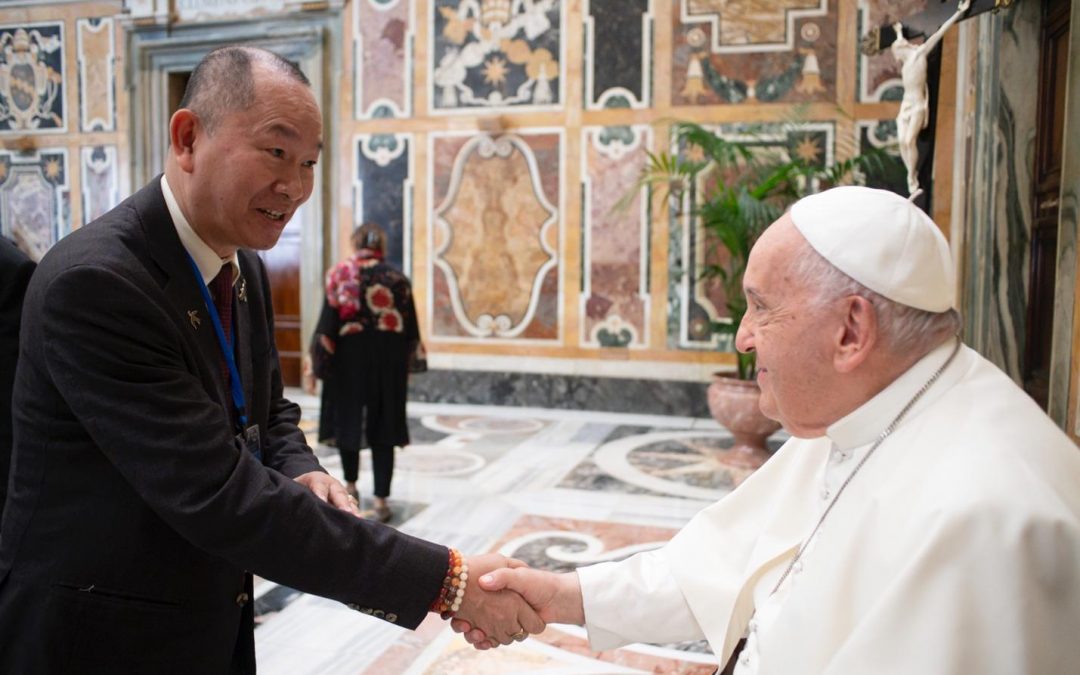
by Editor | Jun 9, 2024 | News
On June 1, 2024, the International Inter-religious Conference at the Vatican marked a historic milestone with the groundbreaking ideas presented by Boston Global Forum (BGF) CEO Nguyen Anh Tuan. During the panel titled “The Impact of Artificial Intelligence on Interpersonal Relationships and Between Religions,” Tuan called upon all participants of the conference, leaders of religions, distinguished thinkers, innovators, and companies to join in taking action for equality of opportunities in AI.
In his address, Nguyen Anh Tuan emphasized the crucial role of interfaith and interreligious cooperation in the era of artificial intelligence. He introduced BGF’s Knowledge Platform for AI and announced that the Boston Global Forum would collaborate with religious leaders to ensure equality of opportunity for every person, company, country, and religion in AI. This initiative aims to foster a new democracy, happiness, and safety for humanity.
Pope Francis delivered a welcome speech to participants of the conference on June 3, 2024, at the Clementine Hall, Vatican.
BGF will work with recipients of the World Leader Award, including Ursula von der Leyen, Andreas Norlén, Sanae Takaichi, Amandeep Gill, Alondra Nelson, and Vint Cerf, for this noble mission. Together with the Focolare Movement and other religious organizations, they will champion the cause of equality of opportunities in AI, ensuring that the benefits of AI are accessible to all, regardless of their background or beliefs.
BGF will announce an action plan for this goal on July 1, 2024. They are open to working and cooperating with every organization and individual who shares this vision.

